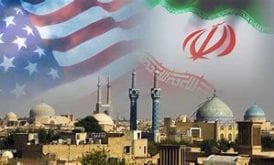Iranwire – On Tuesday, November 11, the Iranian delegation to the swearing-in of Daniel Ortega, Nicaragua’s dictator-president since 2007, for a fourth term, was headed by a singularly divisive figure: Mohsen Rezaei, ex-IRGC commander and Ebrahim Raisi’s vice president in charge of economic affairs.

Rezaei is subject to an Interpol red notice and thus, an international arrest warrant for his alleged role in the July 1994 AMIA bombing in Buenos Aires, Argentina, which left 85 dead and hundreds injured in the biggest antisemitic attack in of South America’s modern history. Last August, his appointment to the vice-presidency in Iran was met with condemnation by the Argentine government, which called on governments around the world to extradite him if he entered their territory.
In Nicaragua, however, the ex-Revolutionary Guards chief was on safe ground. He was conspicuously introduced as “Brother Mohsen Rezai” during the ceremony, to which he responded, before posing for photos with former junta leader Ortega, Venezuelan premier Nicolás Maduro, and President of Cuba Miguel Díaz-Canel.
According to Iranian state-controlled media, Rezaei also used the event to discuss hiking up trade between the two states in the face of international sanctions, describing their cooperation as a “strong slap in the face” to the United States.
Rezaei’s Role in the AMIA Bombing
In March 2007, Interpol’s executive committee upheld the issuance of six red notices against Iranians linked to the AMIA bombing, despite protests from the Islamic Republic. Rezaei is wanted in connection with “aggravated murder and damages” due to his then-oversight of the IRGC, which is believed to have worked hand in glove with Hezbollah and local agents to carry out the atrocity. According to the late Argentine prosecutor Alberto Nisman, Rezai was present at a crucial top-level meeting in Tehran in which it was decided to press ahead with the attack.
Despite being a University of Tehran graduate and economist, Rezaei is well-known for his extremist views. In February 2020, he claimed on the Hezbollah-linked Lebanese TV channel Al Mayadeen that the Iranian government was looking for an excuse to “bulldoze Tel Aviv to the ground.” He added: “If the United States does something, we can use it as a pretext to attack Israel.”
Rezai’s comments came in the aftermath of the January 2020 assassination of Ghasem Soleimani, in which Tehran believed Israel had participated. “It was the Israelis who reported on the trip of the martyr Soleimani from Damascus to Baghdad,” Rezaei said in the same interview.
Fury in Argentina
Despite being a member of Interpol, the Nicaraguan state did nothing to prevent Rezaei’s attendance at the ceremony – let alone to detain him. Moments after his warm exchange of greetings with Ortega aired on national television, both the Asociación Mutual Israelita Argentina and the Israeli Embassy reacted with astonishment. The situation was compounded by the fact that Daniel Capitanich, the Argentine ambassador to Nicaragua, Daniel Capitanich, had been was present at Ortega’s swearing-in as well as Rezaei.
“We regret to see that one of those accused by Argentine justices in the case of the terrorist attack perpetrated against the AMIA, which claimed the lives of 85 people on July 18, 1994, shared an official event with Argentine officials,” the Israeli Embassy said in a statement. “In memory of the victims and their families, we absolutely repudiate this type of action, which only honours impunity.” It went on to condemn “Iran’s support for international terrorism” and demand “measures against the accused” be honored by international authorities.
For its part, the AMIA also repudiated Rezai’s presence at the inauguration, demanding to know why the Argentine government had not withdrawn its ambassador from the ceremony. It reminded states of their duties “to rigorously monitor the Iranian defendants when they leave their country, so that they cannot move freely through the nations that protect them”. Capitanich’s presence and lack of notification to the authorities, the Jewish mutual went on, “constitutes a new offence to the memory of the victims… and an inadmissible affront to Argentine justice.”
It wasn’t until almost 24 hours after the event that the government of President Alberto Fernández issued a tepid statement in response. “Argentina reiterates, as it did last August, that [Rezaei’s] presence in Managua was an affront to Argentine justice and the victims of the brutal terrorist attack against the AMIA, committed on July 18, 1994. Argentina once again demands of the government of Iran full cooperation with justice, allowing the people who have been accused of participating in the AMIA attack to be tried by the competent courts.”
 Shabtabnews In this dark night, I have lost my way – Arise from a corner, oh you the star of guidance.
Shabtabnews In this dark night, I have lost my way – Arise from a corner, oh you the star of guidance.



